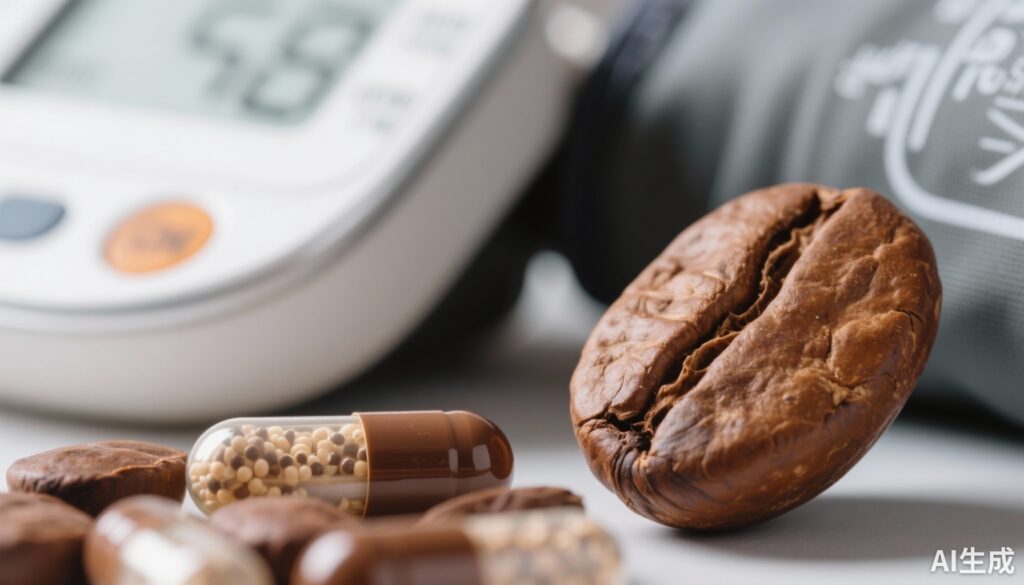Highlight
– The COSMOS randomized clinical trial investigated the long-term impact of cocoa extract supplementation on incident hypertension in older adults.
– Overall, cocoa extract did not significantly reduce hypertension incidence over a median follow-up of 3.4 years.
– A notable 24% reduction in hypertension risk was observed among participants with baseline systolic blood pressure (SBP) below 120 mm Hg.
– The protective effect became apparent after two years of supplementation, highlighting a potential preventive role in normotensive individuals.
Study Background and Disease Burden
Hypertension remains a leading modifiable risk factor for cardiovascular morbidity and mortality worldwide, contributing significantly to the global disease burden. Despite advances in pharmacologic therapies, prevention of hypertension onset is an important public health goal, especially in aging populations where prevalence increases markedly. Dietary flavanols, bioactive compounds found richly in cocoa, have demonstrated vasodilatory and blood pressure-lowering effects in several small and short-term clinical studies. However, solid evidence from large-scale, long-term randomized trials assessing the impact of cocoa flavanol supplementation on preventing the development of hypertension is lacking.
Study Design
The COSMOS (Cocoa Supplement and Multivitamin Outcomes Study) was a 2×2 factorial, double-blind, placebo-controlled randomized clinical trial designed to evaluate the effects of cocoa extract and a multivitamin on cardiovascular and other health outcomes. The cocoa extract intervention provided 500 mg per day of cocoa flavanols, including 80 mg of the active compound [-]-epicatechin. The trial enrolled 21,442 women aged ≥65 years and men aged ≥60 years. From these, 8,905 participants without baseline hypertension were selected for this analysis.
Incident hypertension was defined comprehensively by self-reported first-time physician diagnosis of hypertension, initiation of antihypertensive medications, or documented elevated blood pressure readings during follow-up. The median follow-up period was 3.4 years. Statistical analyses employed Cox proportional hazards models in an intention-to-treat framework to assess the effect of cocoa extract compared with placebo. The placebo did not contain bioactive compounds.
Key Findings
The mean participant age was 71.1 years (standard deviation 6.2), and 59% were women. During the follow-up period, the incidence rates of hypertension were 7.1 and 7.4 per 100 person-years in the cocoa extract and placebo groups, respectively. This difference corresponded to a hazard ratio (HR) of 0.96 (95% confidence interval (CI), 0.88 to 1.05), indicating no statistically significant reduction in incident hypertension overall.
Subgroup analyses provided nuanced insights. In participants with baseline systolic blood pressure below 120 mm Hg, cocoa extract supplementation substantially reduced the risk of developing hypertension by 24%, with a hazard ratio of 0.76 (95% CI, 0.64 to 0.90). Conversely, no significant benefit was found in those with baseline systolic blood pressure between 120 and 139 mm Hg (HR 1.05; 95% CI, 0.93 to 1.18), with an interaction p-value of 0.002, evidencing heterogeneity in response based on initial blood pressure status.
This protective effect in normotensive individuals was not immediate; it emerged after approximately two years of continuous supplementation, suggesting a delayed but sustained vascular benefit. There were no safety concerns or significant adverse effects attributed to cocoa extract supplementation reported in the study.
Expert Commentary
The COSMOS trial advances understanding of dietary flavanols’ role in cardiovascular prevention, particularly highlighting that while cocoa extract is not broadly effective in reducing hypertension incidence, it shows promise as a preventive intervention among individuals starting with optimal blood pressure levels. This aligns with mechanistic studies showing flavanols enhance endothelial function and nitric oxide bioavailability, potentially stabilizing vascular tone over time.
However, the absence of benefit among participants with elevated baseline systolic blood pressure (prehypertension) underscores that cocoa extract should not replace established interventions for blood pressure management. The investigators’ rigorous design, large sample size, and long-term follow-up enhance the trial’s generalizability to older adults, though extrapolation to younger populations requires caution.
Limitations include reliance on self-reported hypertension and medication use, which, while pragmatic, could introduce misclassification bias. Additionally, baseline dietary flavanol intake and other lifestyle factors were not delineated, potentially attenuating observed effects. Future research could explore combined lifestyle and flavanol interventions or assess genetic modifiers affecting response.
Conclusion
In conclusion, long-term cocoa extract supplementation does not significantly reduce incident hypertension risk in the overall older adult population. Nevertheless, for individuals with normotensive baseline blood pressure, it confers a clinically meaningful 24% risk reduction. These findings support the potential role of cocoa flavanols as part of a multifaceted approach to hypertension prevention, particularly in primary prevention settings. As global efforts to curb hypertension-related burden continue, dietary strategies such as flavanol supplementation merit consideration alongside conventional lifestyle and pharmacologic measures.
References
Hamaya R, Li S, Lau J, Allison M, Haring B, Shadyab AH, Matthew N, Martin LW, Rist PM, Manson JE, Sesso HD; COSMOS Research Group. Long-Term Effect of Cocoa Extract Supplementation on Incident Hypertension. Hypertension. 2025 Oct;82(10):1653-1662. doi: 10.1161/HYPERTENSIONAHA.125.25209. Epub 2025 Aug 20. PMID: 40832703.
Grassi D, Desideri G, Ferri C. Flavanols, Vascular Health and Cardiovascular Disease. Int J Mol Sci. 2018;19(10):3198. doi: 10.3390/ijms19103198.
Ried K, Sullivan T, Fakler P, Frank OR, Stocks NP. Does chocolate reduce blood pressure? A meta-analysis. BMC Med. 2010;8:39. doi: 10.1186/1741-7015-8-39.


